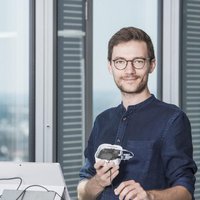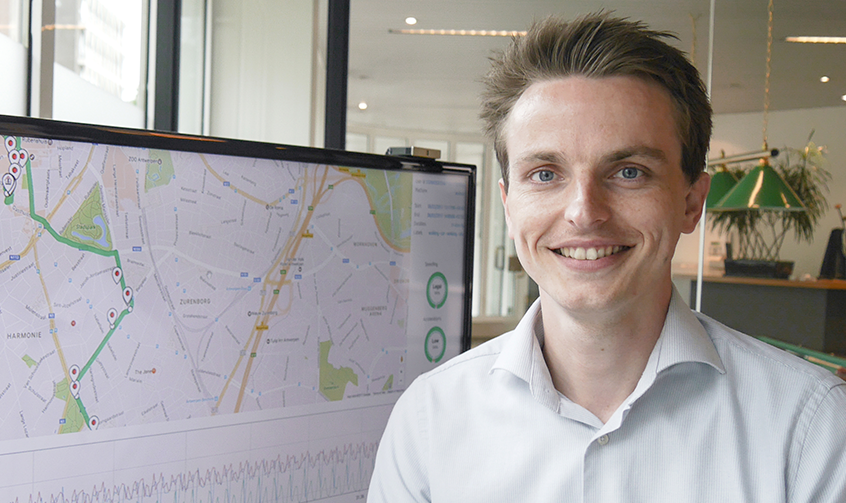Every action taken on the internet leaves a trace and forms part of what is commonly called our digital footprints. Posting comments on social media, clicking on advertising banners and browsing an online store are just a few examples of the data that companies gather to study and get to know their customers and improve their marketing strategies. And thanks to mobile devices like laptops, tablets and smartphones, which accompany users everywhere they go, companies can access the smartphone data, like geolocation details, to learn everything they need to know about potential consumers. How can companies take advantage of all of this data gathered by smartphones without negatively impacting performance in a non-invasive way? Vicent Spruyt´s technology resolves this challenge thanks to a sophisticated machine learning system, which has earned him a spot among MIT Technology Review, Spanish edition´s Innovators Under 35 Europe 2017.
Through a platform named Sentiance, Spruyt´s company gathers location, accelerometer and gyroscope data from smartphones to detect simple events. Through deep learning techniques, the data is interpreted according to context and behavioral patterns to generate a profile with very useful information for the user. For example, if the data gathered indicates that the "user is riding in a car", it may be that they are driving to work or picking up the kids from school. By correlating events which take place with repeated patterns, predictions and anomalies, the system identifies what the user may be doing. In this case, if the user travels by car to work on weekday mornings, the system is capable of interpreting that the user normally drives to work. Finally, by combining all of this information, the system defines basic characteristics which comprise a user profile: following the same example, it could determine whether the user lives far away from work or is a driver who tends to speed.
Sentiance´s creator explains: "Our deep learning system has been trained to learn which information it needs to gather and which data is superfluous and when it will need more data about a specific event. In this way, we have achieved a more efficient system which lowers smartphone energy usage." With all of this data, Sentiance targets companies to enable them to adapt their services to the profiles and preferences of their potential clients.
But in addition to serving customers, users can perform a trial of the system via a free mobile app, compatible with Android and iOS, called Journeys. "In the span of one or two weeks," according to Spruyt, the application begins to present initial conclusions regarding the user´s profile based on the data gathered.
One of the great tightrope acts implied by this type of technologies has to do with respecting user privacy. Spruyt points out that Sentiance "aims to be very transparent" and users must provide their "explicit consent" before any data is gathered from their devices. Sentiance at no time behaves as the owner of this information; the company only processes the data. "Users continue to own their data," says the young innovator.
The first version of the product was launched last year, and already boasts over 500,000 users. Samsung – one of the primary investors in Spruyt´s technology – uses Sentiance to research user lifestyles through their mobile app designed to promote good health. Another is Risk, a Danish insurance company that makes use of user generated data to offer personalized packages and study user behavior behind the wheel.
The professor and researcher and jury member for Innovators Under 35 Europe 2017, Luis Alonso Pastor, agrees that Vincent Spruyt´s project is highly relevant. This expert concludes: "Our lives are already brimming with tools like sensors and machine learning techniques, and Sentiance is pursuing very interesting marketing and software objectives."
By Laura Crespo
Translation: Teresa Woods




